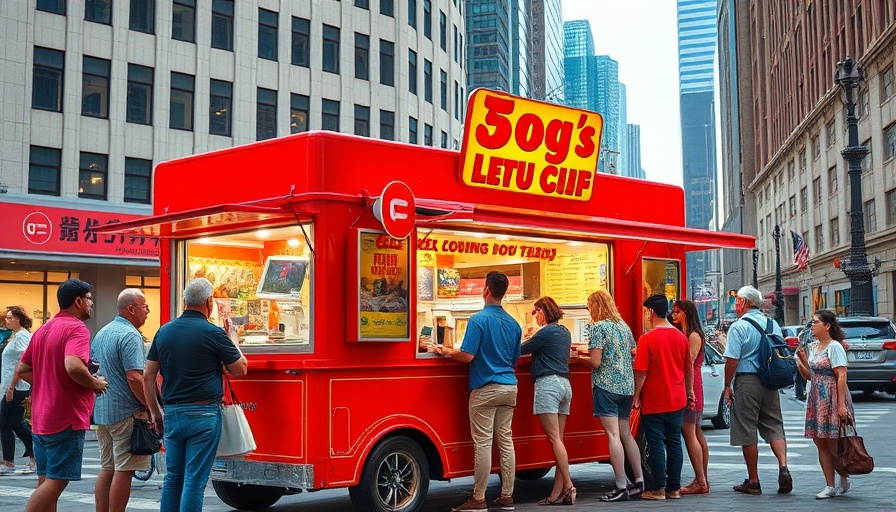
Unlock Wealth with a Food Truck Business: Essential Insights for Entrepreneurs
If you're a business owner interested in expanding your investment portfolio while exploring your culinary passion, launching a food truck business can be a lucrative opportunity. This guide combines critical insights on starting a food truck with perspectives tailored for entrepreneurs keen on optimizing their wealth and financial growth.
Understanding the Food Truck Landscape
The food truck industry has exploded since its early days, with over 23,000 trucks generating about $1 billion annually in the U.S. alone. For potential business owners, the initial investment of $30,000 to $50,000 is significantly lower than that of traditional restaurant establishments. This startup cost, coupled with the flexible nature of food trucks operating from various locales, makes it an appealing entry point.
Identify Your Unique Selling Proposition
To stand out in the bustling food truck market, you must understand local trends and demographics. Research the existing competition and identify gaps that your food truck can fill. Does your local scene lack vegan options, or is there a thirst for gourmet street food? Tailor your menu to meet these preferences while ensuring your offerings reflect your culinary strengths.
The Importance of a Solid Business Plan
A comprehensive food truck business plan is more than a roadmap; it’s a crucial document most lenders require for financing. Your business plan should encompass market analysis, operational strategy, financial projections, and marketing approaches. Be sure to articulate how your food truck can contribute to customer experiences while steering your revenue growth.
Financial Management for Food Truck Entrepreneurs
Effective cash flow strategies are critical for small business owners. Cash flow management becomes particularly important for food trucks, where income can be seasonal or event-dependent. Establish a budget, itemize your expenses, and plan for lean periods to maintain sustainability. It may also be wise to investigate small business grants and funding specifically for culinary entrepreneurs that could enhance your financial health.
Mastering Marketing Strategies
Marketing is essential in a competitive space. Build your brand through social media engagement, local food truck events, and targeted digital marketing campaigns. Consider offering loyalty programs, utilizing influencer partnerships, or launching a promotional marketing push during regional gatherings. Your marketing strategies should reflect the culinary theme of your truck while effectively reaching your target audience.
Understanding Regulations and Compliance
Food trucks are subject to a myriad of health codes and local regulations, which can vary significantly based on location. Securing the necessary licenses and permits is not only essential for compliance but also for fostering trust with your customer base. Conduct thorough research on your region’s requirements and allocate ample time to navigate the administrative process.
Paving the Way for Future Business Growth
Food trucks present an avenue for scalable business opportunities. As you stabilize your operations, think about expansion strategies, such as adding more food trucks or diversifying your menu. Learning how to adapt and innovate your offerings will keep your business relevant and profitable.
Entrepreneurial ventures in the food truck space require diligence, creativity, and sound financial planning. By harnessing effective business practices, you can not only embark on an exciting culinary journey but also enhance your personal wealth optimization.
For those looking to make a significant impact while building their entrepreneurial portfolio, a food truck is more than just a vehicle for food; it’s a path towards financial independence and creative expression.
 Add Row
Add Row  Add
Add 




 Add Row
Add Row  Add
Add 

Write A Comment